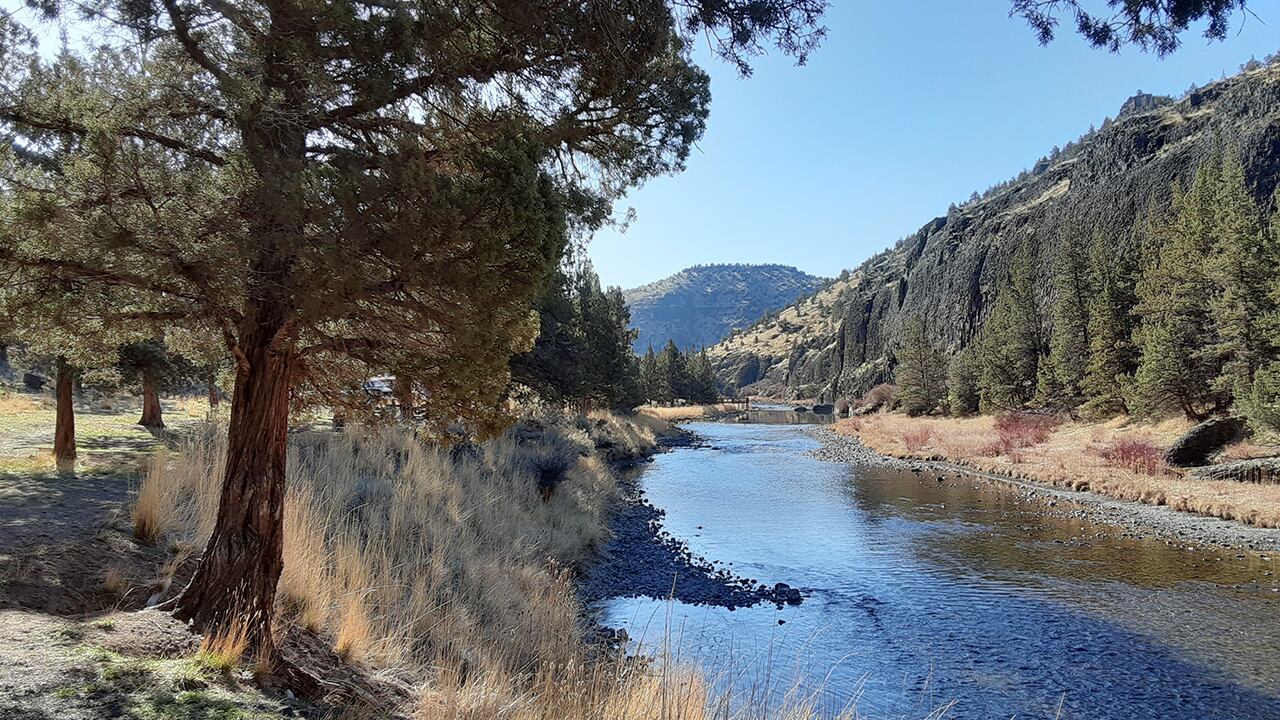We’re staring down a week of temperatures forecasted at or hovering near the century mark, which means burn restrictions are going into effect for campers hardy enough to rough it during a heat wave.
Beginning Thursday, July 28, fires will no longer be allowed at dispersed campsites for a wide swath of Central Oregon. The affected areas include the Deschutes and Ochoco national forests, the Crooked River National Grassland, and the Prineville District Bureau of Land Management.
At this point, however, you can still create a fire for warmth and cooking inside rings at designated campgrounds located within the previously listed sites. Gas stoves and portable propane fire pits are also sanctioned for those in a developed campground.
If your summer vacation travels are taking you to Southern Oregon, the Umpqua National Forest has enacted similar rules. As of July 22, the fire danger levels for that area were increased to high, which means fires there are restricted to designated campfire rings. Those handmade with rocks are only acceptable in the forest’s three wilderness areas.
Thanks to a mild, wet June (and spring in general), fire danger has been lower this year—particularly compared with 2021, when it was virtually impossible to find a place where you could pitch a tent and light a campfire. Last July, the Oregon Department of Forestry prohibited open flames in all state parks and state-managed forests east of Interstate 5. Even lands that typically get plenty of precipitation, like the Tillamook State Forest and the Siuslaw National Forest, banned all fires for a period to help prevent sparking any massive blazes.
Our cooler start to summer, however, has led to an increase of what public lands agencies call “fine fuel loads,” or grasses and foliage, that burn easily and are the primary drivers of forest fires.
On top of that, rangers have come across blazes set by recreationalists that weren’t properly extinguished.
“With several abandoned campfires in dispersed sites over the last few weekends, along with the hotter and drier weather, our intent is to mitigate the opportunity for one of those fires to become a wildfire,” U.S. Forest Service fire management specialist Sara Billings stated on the Umpqua National Forest Facebook account.
City-dwellers, including those in Portland, are also now being told to cancel their s’mores-warming plans.
Multnomah Fire Defense Board chief Scott Lewis issued a countywide outdoor burn ban effective Monday, July 25, due to the prolonged string of sweltering temperatures. That applies to recreational campfires, fire pits, the burning of yard and agricultural debris, and land-clearing blazes.
Barbecuing with grills, smokers or similar appliances with clean, dry firewood, briquettes, wood chips, pellets, and gasses are still allowed, but anyone who’s going to cook a burger using any of those fuel sources should do so with extreme caution.
The Multnomah County burn ban will remain in effect until further notice.

